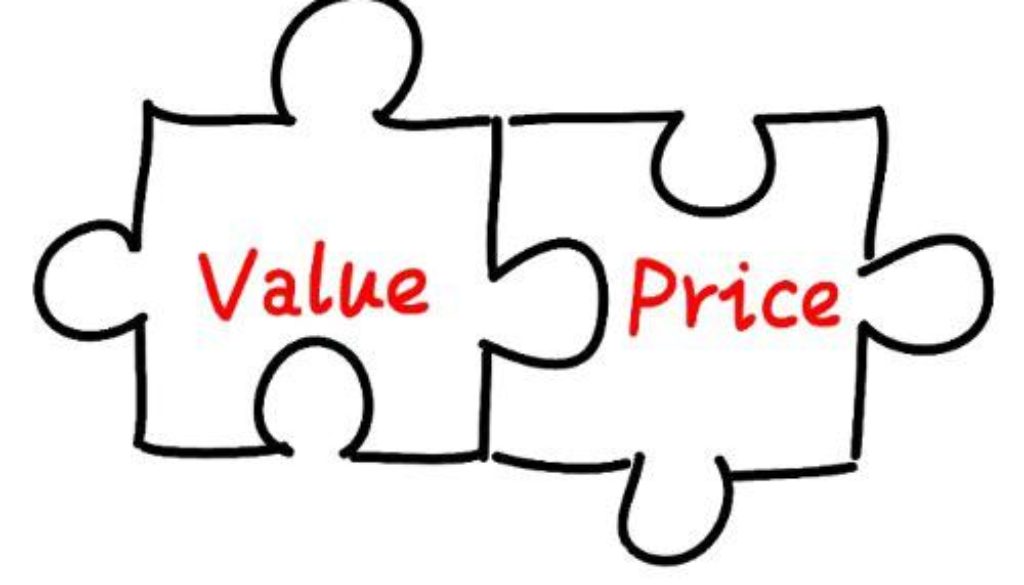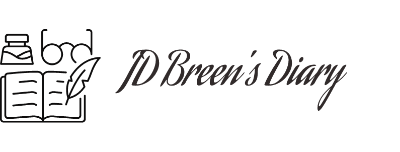A Child of Value

Atlanta, GA
November 13, 2020
Oscar Wilde defined a cynic as someone who knows the price of everything, and the value of nothing. But what if Price and Value are estranged, making it hard for either to know anything?
Price is a child of Value, which can sometimes be a deadbeat dad. Support is seldom provided. Paternity is often denied.
Even when the relationship is acknowledged, the kid is treated more like a distant cousin than a rightful heir. But in many cases, the genealogy is ignored altogether.
Around the world, in many communities, the sad story is all too familiar.
Being neglected and uninformed at home, Price wanders away, seeking shelter elsewhere. It is usually found first at the well-intentioned, worn-down boarding house of “Cost”. For a time, structure, comfort, and routine are provided, and welcomed. But eventually, our orphan grows rigid, then restless.
As he ages, he strays. He finds himself on the street, taking up with rival gangs…such as “Market Rates” or “Customer Feedback”. They are suave, certain, and persuasive. Their symbols and slogans are strong, and self-assured. They may be wrong, but they are rarely in doubt.
As Price seeks identity, such guidance lends an aura of confidence and security to an uncertain scene. It is a forceful influence on an impressionable mind. Once felt, its pressure is intense. Initially, it is reassuring, like a hug. Over time, it can become threatening, like a stranglehold.
Before long, our naive vagabond sees disturbing scenes. Conflict arises. Turf wars erupt, many aimed at intimidating or suppressing his own kith and kin, and reducing them to submission.
Like himself, most combatants have few defensive weapons. When Prices resist, it is often by fighting each other. Such price wars recall the old Sicilian proverb that if one goes looking for revenge, he should bring two caskets.
When prices succumb, they rarely rise again. Instead, they hide, chastened and bruised, hoping not to be noticed, or subjected to further assault. But fear on the street is like blood in the sea, and will prompt a return of the sharks.
Our uneasy orphan knows that, at some point, the fins will encircle him. He realizes he must escape his oppressive surroundings, but expects trouble if he tries. Still, he yearns for home, and the guidance only his long-lost father can give.
After an extended separation, he knows the reunion will be stilted and awkward. After so much time and neglect, Value may not recognize him at all. But he must try.
When he departs, Price does not cut ties with his current associates. Nor should he. His earthy comrades can be tough, crude, and dangerous, yet they offer guidance when no one else will.
And they supply worldly wisdom and intrepid insights known only to those who survive amid the struggles of the streets. Besides, many members of these rambunctious gangs came from backgrounds similar to his own. They simply have no place else to go.
Our ragamuffin decides to retrace his steps to restore his roots, before he suffers the same fate. As Price searches for home, he reaches the discomfiting realization that he cannot quite recall where it is. So diminished has he become by absence, he can only vaguely recall his origins.
Finally, after an extended pilgrimage, scenes assume a shade of familiarity. He presses on till, dejected and weary, our argonaut finally finds his fleece. Or so he thinks.
Nerves jangling, he slowly approaches a small, well-kept, sturdy structure that appears suited to the elusive conception it seems to shelter.
Our wayward waif knocks on the door, unsure whether alienated Value is home, or if he even still lives there. Price hears a rustling inside, followed by a few approaching steps, and the sound of locks being unlatched.
The door opens, and our lost soul is confronted by a familiar face, which reciprocates a startled look.
Value is a fickle father. He is reclusive, subjective, and fluid. He subscribes to the old adage that the best is eventually the cheapest, but it may take a while to reach that conclusion.
He understands it is bad to pay too much, but can be worse to pay too little. He is discerning and disciplined, but hard to pin down. He can be unsentimental, and is sometimes caught off guard.
He is moved by the sight of his son, and suddenly overwhelmed with guilt. Before him stood his progeny, who now bore him little resemblance. Scrawny, shaking, and unsure of himself, the son was starved for the sustenance only his father could provide.
But the son’s deficiencies were not the father’s only lament. In that moment, the inadequacies of his own existence, and the want of paternal perspective, were reflected in the open door.
Value is often his own worst enemy. He tends to hide himself…keeping the sound off, the shades drawn, and the lights out. He consigns himself to anonymity throughout much of the world. Whether he likes it or not, Value is represented (or misrepresented) vicariously thru his son.
The child’s actions mold the parent’s reputation. The pair must work together, or fall apart. Value informs Price, which reflects Value. As the master mentors an apprentice, the parent must instruct his son, so that the painting might one day honor the brush. Without each other, neither Price nor Value can adequately express himself. They are, as Alfred Marshall said of supply and demand, the two blades on the same pair of scissors.
Value has his own insecurities. He knows his worth, but has difficulty measuring up, or amounting to something. He is better at psychology than at math. Numbers make him nervous. He is reclusive, and has difficulty sticking up for himself.
Price, thru his wanderings, is more familiar with the ways of the world. Unlike his father, he is comfortable with numbers. He has met many, and assumed their identity. But he respects their limitations, knows they can be schizophrenic, and is skeptical of them.
He knows that, like a pair of pants needing both belt and suspenders, numbers become less reliable with each added decimal point…that with greater precision comes a bigger lie. Like a good lawyer, he wants to make his father’s case, without overstating it. Without his son, Value falls mute, and less scrupulous witnesses speak on his behalf.
Value is too often the tail to Pricing’s kite. Ideally, it would be the wind.
Value shares Fontenelle’s sentiment, that “Je suis effrayé de la conviction qui règne autour de moi”. Like that French author of the early Enlightenment, Value is often frightened by the certainties that reign around him.
Tho’ he traffics in numbers, Price would agree. When representing his cagey father, he would rather they be roughly right than precisely wrong. He need not hit the apple, but he’d at least like to point William Tell in the right direction. Especially when trying to quantify the merits of his diffident dad.
Value can be vague, but Price must be practical. He must be entirely truthful…even if he can’t be completely factual. When trying to take the measure of Value, he may need to respond in the manner of Warren Buffet when asked to describe a 400 pound man. He may not know exactly how much he weighs. But he would know that he’s fat.
When Price speaks, he must consider the audience. He may not be able to tailor the perfect message to each member, but he should try to categorize them the way we cluster cities into time zones. Within each segment, his answer may not be ideal for any one component in particular, but it should make sense for all of them in general.
Like a teenager trying to find himself, Price is not so much “set” as discovered. He is fidgety, sometimes surly, and often talks back. And he is ever in motion. Price is less a numerical notion than a perpetual process. And, to stay on the ground, he must often assume airs.
Sometimes Price must be direct and…like Federal agents bursting into a speakeasy… immediately announce himself. But most occasions require diplomacy, discretion, and tact. Price may need to cloak himself in fancy dress, show a few different faces, and deliver carefully crafted messages.
Price must frequently be circumspect, and should sometimes remain silent. After all, anything he says can and will be used against him. Those to whom he speaks tend to be excellent stenographers. All his statements are recorded for reference. And he should remember that a reference price, like an insult, is easy to toss out, but hard to take back.
When assessing competitors and customers, he mustn’t underestimate their intelligence or overestimate their information. Instead, he should respect one and enhance the other. To do so, he once again relies on his father.
And he should.
Most people esteem the father, yet begrudge the son. Everyone wants to go to Heaven, but no one wants to die. But Price is the key that opens the door.
To borrow another Buffett quote, Price is what you pay. Value is what you get. You may not always get what you want, but you usually get what you deserve. As the French put it, le prix s’oublie, la qualité reste: the quality endures long after the price is forgotten.
More often than not, a low price is like a nude beach. It sounds good…until you get there.
JD



